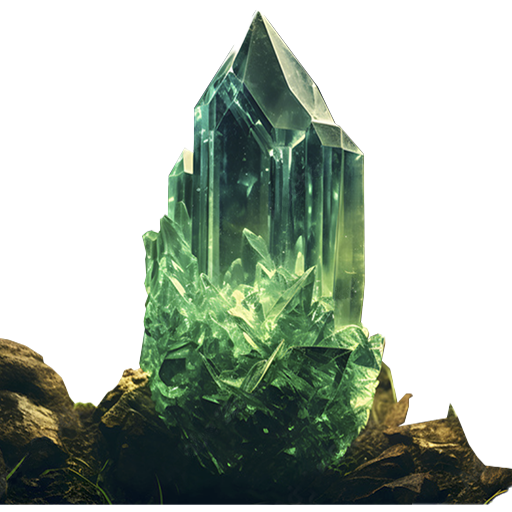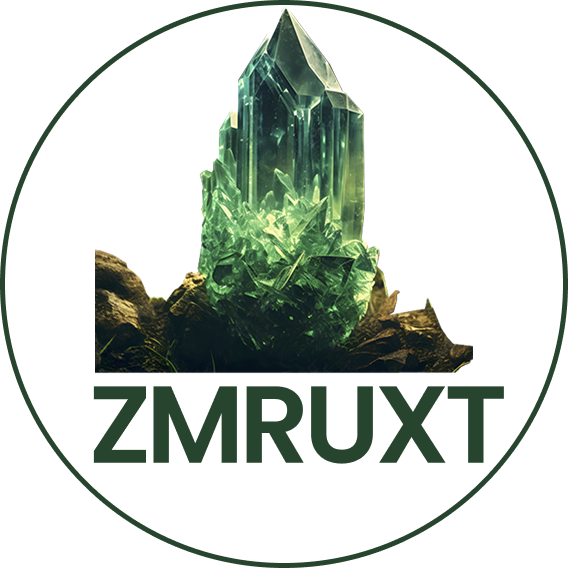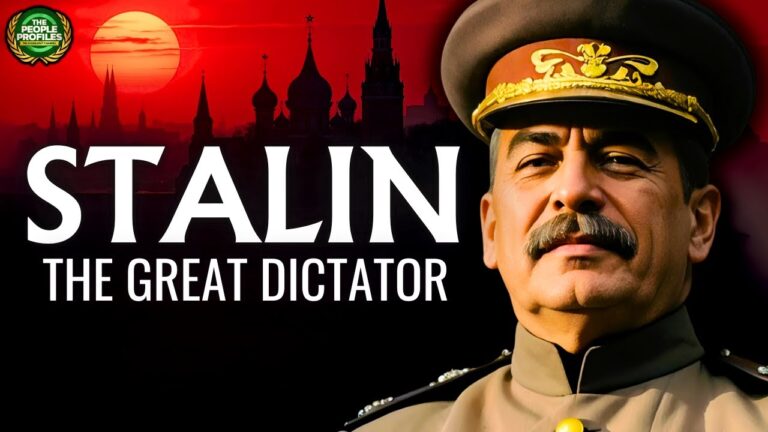Please subscribe here. Our second channel.
source
Trending
- Սուր անկյուն 21.09.2025 – Գագիկ Շամշյան «Օդից կախված շառը»
- They Trained You To Be Poor — Here’s How To Unlearn It
- Rosenberg’s Warning: This Housing Metric is Now ‘Worse’ Than the 2008 Crash
- Abstract Island 2
- Թաքնված Հայաստան – Հայաստանի Ազգային Գրադարան / Hidden Armenia – National Library of Armenia
- Armenian Alphabet Song But Inui, Tobot
- 06.07.25, Su. От пл. Республики, по Тигран Мец до Кольцевого сада , где поели вкусный ламаджо.
- Ե՞րբ և ինչքա՞ն եկամտաբերություն ակնկալել Ստարտափներում ներդրումից




45 Comments
Thanks for watching everyone!
Please subscribe here. https://www.youtube.com/@PeopleProfiles?sub_confirmation=1
Check out our second channel. https://www.youtube.com/@PeopleProfilesExtra
Follow us on Spotify. https://open.spotify.com/show/7fKALbrzEO9Q4VVvAwWHqL
Support us on Patreon https://patreon.com/thepeopleprofiles
Follow us on Twitter. https://twitter.com/tpprofiles
If you liked this video, check out our related documentaries below:
https://www.youtube.com/playlist?list=PLNwBhP0rWSz1EQOUiCo2hOzXogNU5psT8
https://www.youtube.com/playlist?list=PLNwBhP0rWSz0vPvWecG4EPQIWEIh34K-X
https://www.youtube.com/playlist?list=PLNwBhP0rWSz3l1yKTFKS6b3GPniSWVpmX
Truly a great dictator. "Uncle Joe". We helped him kill 25 million Christians to defeat National Socialism. And here we are
Aint nothing great about Stalin…he was a mass murderer…
hmmm good work
Stop bullshitting about Stalin Below is how Russia thinks about Stalin By Andrei Yanofki.
A good question, actually. It’s a question that brings up an interesting aspect of Russian culture.
I’d say that, surprisingly, though everyone knows Stalin was Georgian, not Russian, modern Russians actually think of him as “our” leader first, and as a Georgian only second.
No one would call him Russian, of course, but my personal impression is that deep inside, most think of him as “one of us” (both those who like him and those who dislike him). This does crate a certain paradox, because he was Soviet first and Georgian second, and modern Russians are neither Soviet not, obviously, Georgian. Yet, I feel, many Russians would consider him of the same nation as themselves, though it’s not the answer they would give if asked directly
Good doc.
again fake history))
create films about usa bloody butchers (humanity crimes of usa presidents)
all world know real history of your crimes)
Minus the 20 million he murdered
YES DUCOMANTRY
Thank 👍
Me listening to casually, Spits out coffee after hearing STALIM WAS A PEDOPHILE
You all should understand from this video that WW3 is very near
In times of cold war England and America did very unethical things which will lead the world in a destruction and no one will be able to avoid it
Anatomy of the Great Terror: Internal Power Struggle as the Engine of Systemic Transformation (1934–1938)
The mid-1930s in the USSR is traditionally viewed in historiography as the era of Joseph Stalin's undisputed dictatorship. However, beneath the monolithic facade of the "Leader of Peoples" lay a complex and bloody drama—not just a power grab, but a fundamental restructuring of the entire political system. The Great Terror was less a consequence of one man's paranoia and more a tool for resolving deep structural crises inherent to the very nature of the Soviet state.
1. The Kirov Assassination: The Symbolic Trigger for a Systemic Crisis
Sergey Kirov’s death on December 1, 1934, was a point of bifurcation where latent conflicts exploded into the open. Within the Marxist paradigm, which viewed the world as a state of permanent class conflict, the external threat (the rise of Fascism in Germany) was simply a projection of internal, immanent "contradictions of capitalism" onto Soviet soil. Stalin and his inner circle saw any internal opposition not as a discussion club, but as a potential "fifth column" ready to collude with the foreign enemy.
Here, we observe the phenomenon of "tower showdowns" (razborki bashen)—a term that accurately describes the autonomy of major party, economic, and security clans (Obkoms, People's Commissariats, OGPU/NKVD). These "towers" were essentially states within a state. Genrikh Yagoda, who headed the NKVD, used the Kirov case as a pretext for settling old scores, demonstrating that the punitive apparatus was acting in its own corporate interests. His removal in 1936 was a clear signal: Stalin couldn't permit the sword of justice to be wielded by a "feudal lord" pursuing personal objectives.
2. The Yezhovshchina: The Phenomenon of the "Uncontrolled Instrument" in an Authoritarian System
Nikolai Yezhov’s appointment marked the transition from targeted repression to systemic terror. If Yagoda was a "feudal lord," Yezhov was the ideal "technologist of horror." Given carte blanche, he set about the main task with fanatical zeal: the physical elimination of old, potentially disloyal elites established during the Civil War and the NEP.
But here, the fatal dialectic of totalitarian violence manifested itself. Under Yezhov, the NKVD apparatus began transforming from an instrument of the central authority into an "independent Leviathan." By controlling the flow of kompromat ("anathema notebooks") on the highest leadership, Yezhov himself became the most dangerous "tower." The mass operations of 1937–1938, with their quotas (limity) and irrational brutality, began to undermine not just potential opposition but the very governability of the state, annihilating army command staff, engineers, and economic managers.
Yezhov’s removal in 1938 was not an end to the Terror but its "rationalization." Lavrentiy Beria, his replacement, was not a fanatic; he was an effective manager of repression. His mission was to put the NKVD back to work for the state, not for its chief's personal ambition, ensuring the seamless operation of the suppression machine ahead of the inevitable war.
3. The 1936 Constitution: A Paradox of Liberal Rhetoric and Authoritarian Practice
The "Stalin Constitution" is one of the era's most telling episodes. Its democratic rhetoric (universal, equal, direct, and secret suffrage) wasn't mere propaganda. It was a strategic gambit by Stalin. Historians see it as an attempt to "legitimize" power through plebiscitary support, bypassing the party "intermediaries"—the regional secretaries.
This is precisely where the Nomenklatura's resistance was most effective. Party apparatchiks rightly feared that "free elections" could sweep them out in favor of a popular engineer or factory director with no party network ties. They successfully blocked or watered down these provisions. This conflict clearly showed the limits of Stalin’s power before the Terror. The Great Terror, among other things, became the response to this resistance—a total purge that physically eliminated the very possibility of challenging the center's will.
4. The Nomenklatura and the Mythology of the "Vozhd" (Leader): A Symbiosis of Power
The Cult of Stalin was not solely a product of his personal ambitions. It was a "social contract" made by the new Soviet aristocracy—the Nomenklatura. This layer, the flesh and blood of Russia's thousand-year authoritarian tradition, psychologically required the figure of the "Tsar-Batyushka" (Tsar-Father) or an infallible leader. The Cult of the "Vozhd" fulfilled critical functions:
Legitimization: Justified the Nomenklatura’s privileges by deriving them from the grace of a "wise and infallible" leader.
Stability: Served as the cement binding the system where all career verticals converged at one point.
Mobilization: With war looming, the figure of the Leader became the central element of mobilization ideology.
The war proved the effectiveness of this systemic overhaul. Having eliminated the old, "partisan" guard, Stalin forged a new management hierarchy. The State Defense Committee (GKO) of the war years was not a one-man dictatorship, but a "super-centralized collegiate body" composed of individuals absolutely loyal to the system and to Stalin personally, all having passed the brutal natural selection of the Terror.
Conclusion
Thus, the Great Terror is revealed not as an irrational burst of violence but as the tragic and monstrously scaled "logic of systemic transformation." It was the forceful method for resolving contradictions between the center and the "feudal" elites, between the need for mobilization and the inertia of the old system, and between charismatic authority and party bureaucracy. It created the type of state—monolithic, hierarchical, and supremely militarized—that managed to survive the World War, but whose internal structure determined the country's trajectory for decades to come.
😅😮😢
Social democrat
σταλιν και λενιν σκοτοσανε πανο απο 20 εκατομιρια στη ροσια ο χιτλερ ερχετε δευτεροσ σκατα στον λακοτουσ τα καθικια του κερατα α να μιν χεχασο και τιν οικογενεια ρομανοφ αλλα καθικια καταστρεπσανε τον ροσικο λαο τρογανε με τισ κουταλεσ και ο λασ πειναγε σκατα στον λακοτουσ ολον
Russian history always fascinated me. When I was at school, I read The Mother and I'd imagine myself among those characters. And as a grown up while reading A Gentleman from Moscow I did the same. Such a great nation who was once unbeatable ❤
Say what you will about Stalin, but he knew how to handle his enemies.
He was well loved and respected by all Russians.
Hi thank you nice history dokument.
I particularly love the details of this documentary and I like to see more of it.
Two things you fail to mention: 1) President Hoover sent TONS of food to the starving people of the USSR; 2) The Soviet economy was never very good, because there is no incentive for people to invent things or work hard because there was no reward for it as opposed to capitalism.
super boring. so slow. you can play it with 1.5x speed and still boring
The Great Joseph Stalin! Greatest Leader of the last century.
Is the voiceover glitchy for a reason? Lots a weird flaws at the end of sentences that sound robotic.
WICKED
Trước mắt thanh nọc từ các tôn giáo đã
If only Stalin would have called his projects, the great patriotic ____.
Good pay, good food and Russians would have lined up to go. He would have accomplished more in less time. 🤷♂️
I like the start "The man known to history as…"
Joe Stalin got off easy. I understand that he had a horrible experiences growing up but Joe was straight up psycho killer. Others have had that or Worse and Never become a Joseph Stalin type. He Did Not care how many people he killed once he rose to power. Millions Dead By His Orders. And He Got Away With It. Ask Yourself: How many people do you personally know yet alone do not personally know in your own life experiences good and horrible mind you; Could Ever Remotely Possibly Get Away with murdering 1 Person yet alone Millions Just By Virtue of the fact that they existed?!! And Then: And Then die themselves a rather uneventful death. WHO?!!?
What a life.
Rascals stop your bla bla don’t change any of history,indians putans face on that great Stalin face
When i was young, i thought josef stalin and saddam hussain were the same
Never get enough of documentaries about Stalin. Such a fearsome yet fascinating figure!
❤❤❤❤❤
Stalin was ghetto AF.
Basically, what I learned from this is that Stalin was the Tywin Lannister of 20th Century global politics. Effective leadership without so much as a semblance of a barometer for morality.
Insane conclusions reached about 50 mins in…of course the 5 year plan would work in industrialization if you disregard the genocide involved 😮..🙏
Hitler is an amateur compared to this guy. However, Mao would outdo him. Isnt Communism great?
It's unfathomable that so many STILL think Communism is a good idea, in spite of all the lessons of its history. Pampered children from The United States and Western Europe generally, who have never had to live under it.
Joseph Stalin did not follow Karl Marx. He had more in common with Nationalist Socialists such as Adolph Hitler.
Wow death followed this man everywhere 😢
Hello to you
Add sud language farsi
A kulak could be someone who owned two horses and a pig.
A great statesman